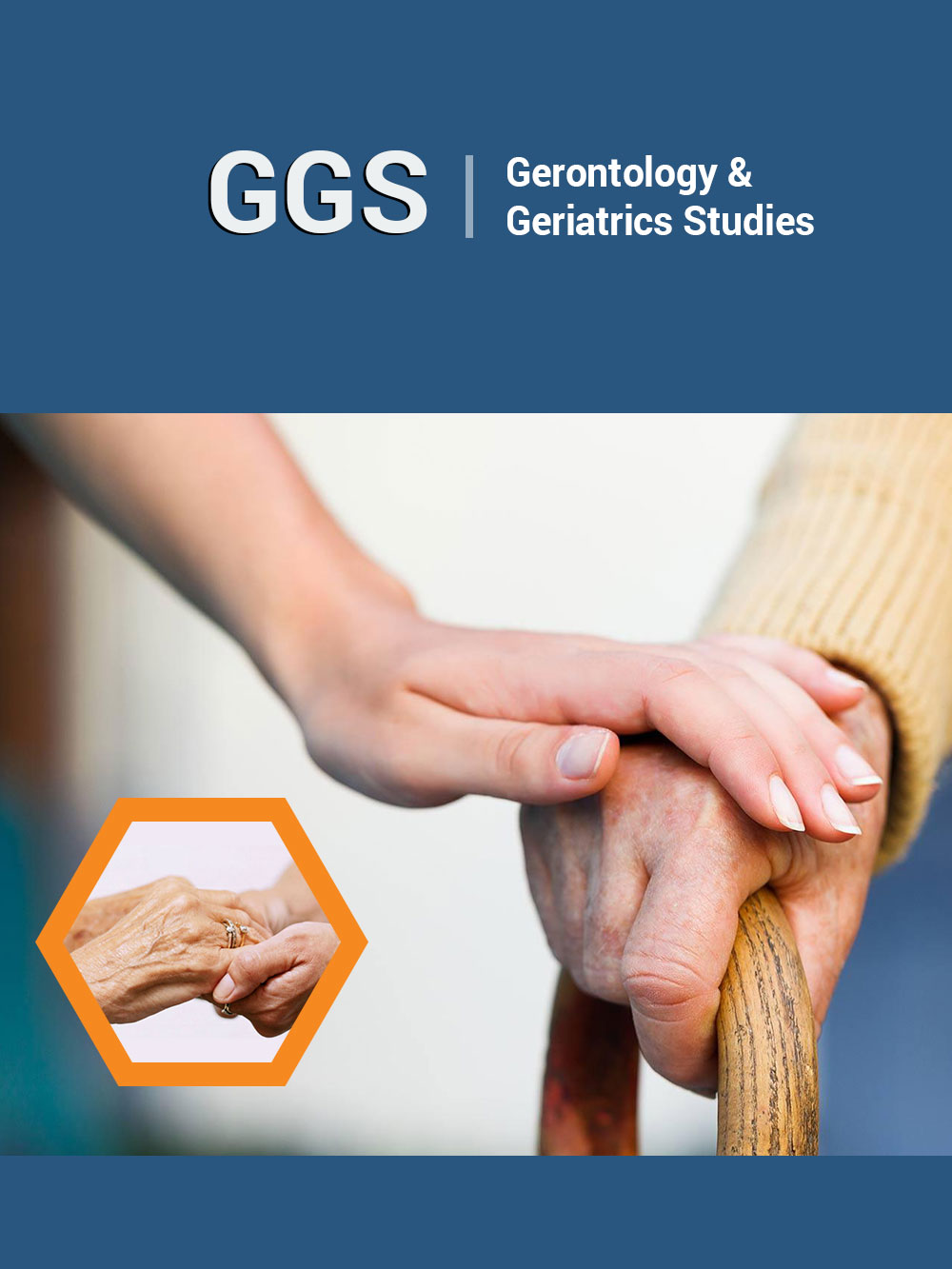- Submissions

Full Text
Gerontology & Geriatrics Studies
Old Age
Kakarla Subba Rao*
Nizam's Institute of Medical Sciences, India
*Corresponding author: Kakarla Subbarao, MS, DSc. (HON), FRCR, FACR, FICP, FSASMA, FCCP, FICR, FCGP, Chairman, KIMS Foundation and Research Centre, Minister Road, Secunderabad-500003, AP, India
Submission: February 28, 2018; Published: March 12, 2018

ISSN : 2578-0093Volume2 Issue3
Editorial
'Old is gold' is an adage but it may not be a true all the time in all the places.
Geriatrics is a subspecialty of general medicine which deals with health and well being of old people. The definition of old age is changing. In some places it is beyond 60yrs and in others it is 65yrs. Gerontology is the study of ageing which includes biological, physiological, sociological and psychological changes. The number of old age population is increasing gradually. World's geriatric population has reached 1.25 billion. Indian ageing population is around 104 million. 'Sathamanam bhavathu' is a blessing given to younger people. But, very few people live healthily beyond 100yrs.
Anatomical and functional changes take place from head to toe at the age of 40. The gray hair and brittle nails in the toes are few of the visible changes. The goal of any government is to take care of and to make use of old people. Senior citizens is a dignified word, given by USA. All the major systems namely central nervous system, respiratory system, gastrointestinal system, genito urinary system and musculoskeletal system undergo involutional changes leading to functional disability. These changes occur differently in different regions and in different races. Genetic factors, environmental factors and personal life styles play a major role in senility. 'Prevention is better than cure' in geriatrics. Drinking pure water, taking nutritious diet, living in clean surroundings and developing a routine habit of physical exercise and avoiding smoking and drinking definitely lead to a healthy ageing.
Having a attained the old age certain disciplines must be adopted for a healthy and active ageing. The following 12 rules are recommended for this status:
1. Live in your own place to enjoy independence and privacy.
2. Hold on to your bank deposits and assets with yourself or your spouse.
3. Don't depend only on your children’s promise to care for you when you grow old as their priorities change with time.
4. Expand your circle of friends to include those who will outlive you.
5. Do not compare; expect nothing from others.
6. Do not meddle in the life of your children. Let them live their life not yours.
7. Do not use old age as your shield and justification to demand care, respect and attention.
8. Listen to what others say but think and act independently.
9. Pray but do not beg even from God. Seek his Grace.
10. Finally, DO NOT RETIRE FROM LIFE.
11. Be positive and optimistic.
12. Be active and serve others.
Having mentioned these personal responsibilities, the UN declaration of human rights and the International federation on ageing formulated certain rights and responsibilities for the elderly. The respective Governments and Non-Governmental organisations should play an important role in extending services to the elderly. We do hope that a healthy and purposeful ageing will go a long way in the progress of civilization.
© 2018 Kakarla Subba Rao. This is an open access article distributed under the terms of the Creative Commons Attribution License , which permits unrestricted use, distribution, and build upon your work non-commercially.
 a Creative Commons Attribution 4.0 International License. Based on a work at www.crimsonpublishers.com.
Best viewed in
a Creative Commons Attribution 4.0 International License. Based on a work at www.crimsonpublishers.com.
Best viewed in 







.jpg)






























 Editorial Board Registrations
Editorial Board Registrations Submit your Article
Submit your Article Refer a Friend
Refer a Friend Advertise With Us
Advertise With Us
.jpg)






.jpg)














.bmp)
.jpg)
.png)
.jpg)










.jpg)






.png)

.png)



.png)






